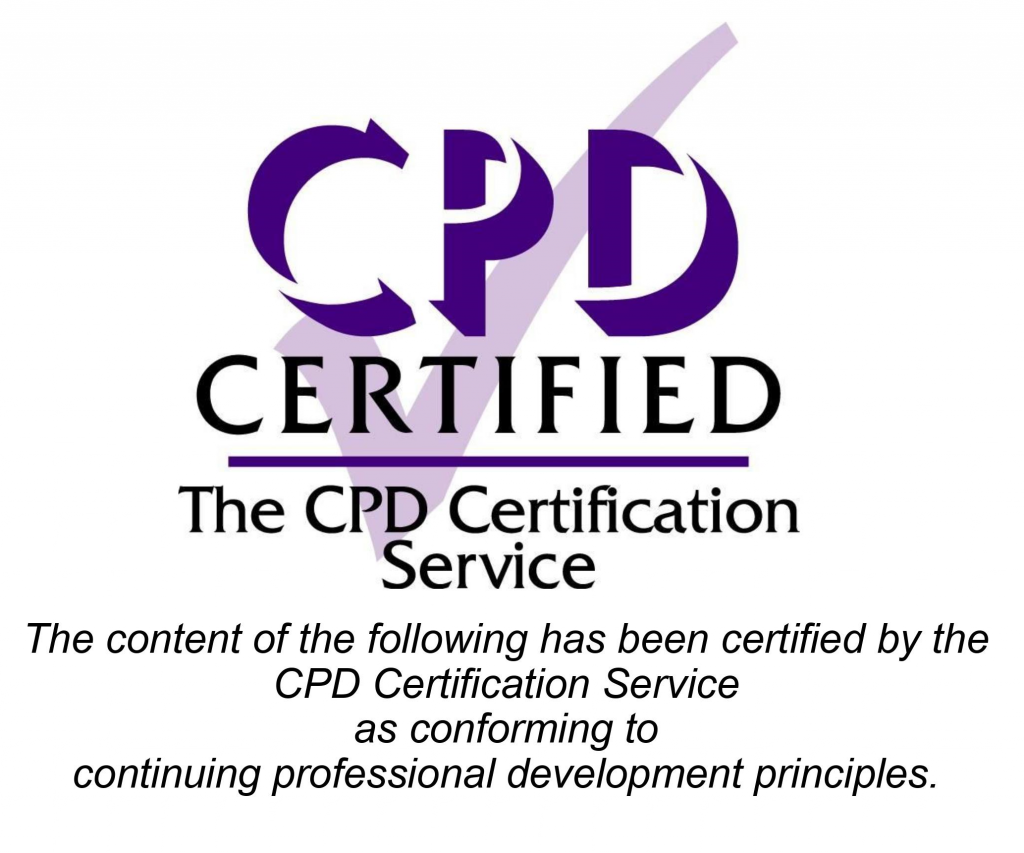Good Care Leadership Read More »
The post Good Care Leadership first appeared on Pavilion Learn.
]]>NEW
Online training course

An essential training and development course for frontline health and social care staff to become effective leaders through a simple but powerful framework.
This course will develop your skills on how best to increase the positive influence that frontline staff can have on their teams and work environment and quality of care. Well-known trainer and author of this course, Paul Whitby, provides you with the path to good care leadership.
Group discounts for 3 or more participants are available. Please enquire and provide us with further details.
Timing
Five sessions, each takes about 3 hours
Good frontline leadership is vital to improving morale and care quality in health and social care teams. This is never more important than at a time when services are so stretched and having to adapt quickly to changes in procedures and practice. Good leadership promotes effective response and guards against poor care, neglect and abuse that may occur within inpatient and residential health and social care settings. Most leadership training approaches stress having good clinical skills but pay little heed to how best to increase the positive influence that frontline staff can have on their teams and work environment. This essential training and development course addresses that need through a straightforward and powerful leadership framework.
The simplicity and effectiveness of the approach comes from careful analysis of poor care and ways to prevent it happening, and a distillation of the theories of good care leadership, based on psychology, psychotherapy and nursing studies. Its flexibility means that it can be used for group training or for individual leadership development.
The content of Good Care Leadership covers aspects of the following SfC modules:
- Leadership Qualities Framework: Demonstrating personal qualities; Working
- with others; Managing services (Managing people and managing performance);
- Improving services (Encouraging improvement, facilitating transformation)
- Managing People: Building resilience; Code of Conduct; Developing your staff;
- People performance; Supervision
- Transforming Care: Set the right culture and values; Workforce development
- Leadership Starts With Me – entire unit
1. Respect for frontline care staff
The whole course is based on the notion that the people best placed to improve care in hospitals, homes and other service settings are already working in them. These are the people with the knowledge, skills and values who have the potential to really make things happen. Their hard work and dedication are rarely recognised. Also, they have great potential for development if only they are given the right environment to flourish.
2. Attending to solutions and strengths
is far more helpful than focussing on weaknesses and mistakes. Frontline care professionals are always trying their best and much of the time they are doing well. Criticising them for being less than perfect is likely to lead to demoralisation and resentment. Instead, on this course we look at people’s strengths and what they are doing right. Paying attention to what works and doing more of it is a very practical approach.
3. Culture matters at least as much as personality
Whilst ‘character’ is important in caring it is also essential that all professionals are surrounded by an environment, a ‘culture’, that nurtures their good practice and makes it natural for them to perform at their best. Fortunately, part of the situation is directly under the influence of frontline staff, especially the leader. This is the emotional and psychological culture of the workplace. All staff in a care home, on a ward or other service setting contribute to their workplace culture and can help make it more positive and supportive. Whilst it is usual for the more senior staff to have the most influence it is clear that junior staff can also be important influencers too.
See “Course content” for the complete syllabus.
CPD accredited, the course will enable frontline leaders in all service settings to:
- demonstrate increased self-confidence and competence in the exercise of leadership
- promote the articulation and practice of caring values
- use authority and power in an appropriate and effective way
- motivate others in their team.
This is a course about developing ‘soft’ skills, so it does not contain a lot of content to be learned and tested. While there are review quizzes to assess your knowledge gains in Sessions 3 and 4*, most of the course activities are reflective, providing an opportunity for you to explore your self, your strengths and your practice as an actual or potential leader. You may wish to ‘buddy’ up with a colleague to share and discuss the outcomes of these reflections, or bring them into the supervision process through discussion with your line manager. If you are undertaking this course as a team, you could build in team sharing and discussion at the end of each session.
The main opportunity to put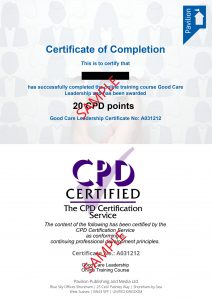 your online learning into practice is through Session 5: Project – Putting It Into Practice. Here you will be able to take your learning and create a leadership project in a real world setting. You will need to build in an opportunity to ‘report back’ on your project and the way you do this will vary, depending on whether you are working as an individual or as part of a team undertaking the course.
your online learning into practice is through Session 5: Project – Putting It Into Practice. Here you will be able to take your learning and create a leadership project in a real world setting. You will need to build in an opportunity to ‘report back’ on your project and the way you do this will vary, depending on whether you are working as an individual or as part of a team undertaking the course.
Upon completion of this course, you will also receive a downloadable CPD certificate
This course will be of benefit to any frontline health or care professional who has a leadership or supervisory role over other staff members.
In nursing and residential care homes, supported living and other supported settings for people with learning disabilities, autistic people, older people, those with mental health needs or disabilities, this would include:
- Nursing and care home managers
- Shift leaders
- Nurses
- Senior care workers
- Senior support staff and team leaders.
In hospitals, clinics and other healthcare settings this would include:
- Modern matrons
- Ward managers
- Staff nurses
- Doctors
- Other clinical and allied professionals
- Social workers
- Clinical and health psychologists
Links to other qualifications and standards
Skills for Care
The Care Certificate and Levels 3 & 4 Diplomas in Care contain units with the theme of Personal Development and Values.
The Level 5 Diploma in Leadership and Management in Adult Care units in the areas of DILMAC 1A & B, Leadership and Management, DILMAC 4A Relationships and partnership working, DILMAC 5C Continuous improvement, DILMAC 6A & B Professional development, supervision and performance management, DILMAC 9A Managing self.
The content of Good Care Leadership covers aspects of the following SfC modules:
- Leadership Qualities Framework: Demonstrating personal qualities; Working with others; Managing services (Managing people and managing performance); Improving services (Encouraging improvement, facilitating transformation)
- Managing People: Building resilience; Code of Conduct; Developing your staff; People performance; Supervision
- Transforming Care: Set the right culture and values; Workforce development
- Leadership Starts With Me – entire unit
The NHS Knowledge and Skills Framework dimensions
- Personal and people development
- Service Improvement
- Quality
The NHS Leadership Academy dimensions
- Inspiring shared purpose
- Leading with care
- Sharing the vision
- Engaging the team
- Holding to account
- Influencing for results
Registered Nurse revalidation
Good Care Leadership is particularly suited to the compulsory nursing revalidation process for all qualified nurses. As well as being a form of CPD, as a reflective development process it is an excellent basis for the requirements for written reflective accounts and the requirement to have had reflective discussions. The course is relevant to the NMC Code, Section 25 Leadership. The Values exercises directly relate to The NMC Code of ethical practice.
The course comprises video presentations by the author followed by exercises and quizzes that can be carried out individually or as teams both online and offline.
An end-of-course project prompts learners to put leadership knowledge and skills into practice in a real-world setting.
Each of the five sessions takes between 2.5–3 hours, so the total time required for the course is approximately two days, plus time involved in executing a work-based project planned in Session 5. There is also a need for a follow-up session for reporting on the projects; this will need to be arranged according to local needs and according to whether the course is being undertaken by an individual, a team or an organisation.
Trainers and assessors are able to access the students’ work within their accounts and add comments. This includes completed and uploaded handout exercise sheets, quizzes and end-of-session reflections.
This online learning is applicable to organisational and team development in a wide range of settings, for example:
- Managers of a learning disability service could use the course with senior carers to develop their leadership potential in transforming existing provision.
- Managers or senior carers in a care home for older people could use it to develop their staff in order to boost morale and improve quality of care.
- An NHS Trust Training Department could use it to bring staff from many wards together for a large training exercise to ensure that leadership skills are widely cultivated throughout the Trust.
About the author
Paul Whitby, was formerly a psychiatric nurse and is now a clinical psychologist. He contributes to the Bath University Clinical Psychology course and the Aneurin Bevan NHS Trust management development course. He started his career as a psychiatric nurse and for a while was a Charge Nurse at the Bethlem Royal Hospital before completing his Clinical Psychology training.
Throughout his clinical psychology career, Paul has worked on wards alongside the nursing staff. He believes that his experiences have given him a unique insight into the problem of variability in the quality of care offered in different care homes and wards, why some places succeed and other do not.
Paul has been involved in training at various levels for many clinical disciplines in the NHS. He is also a trustee of a local dementia charity. He edits the Faculty of the Psychology of Older People Bulletin (a British Psychological Society periodical).
Course access
Is available 24/7 through “My Account” once registered
Group access
Group licensing available
The post Good Care Leadership first appeared on Pavilion Learn.
]]>LDT London 2020 Virtual Event Read More »
The post LDT London 2020 Virtual Event first appeared on Pavilion Learn.
]]>Description:
As we approach the end of 2020, we never anticipated we wouldn’t be able to celebrate Learning Disability Today London’s 20th anniversary. No busy exhibition floor, no visitors in full seminar rooms listening to respected voices in the sector. But we couldn’t let 2020 pass by without interacting with you.
This year we are offering you virtual sessions over several days commencing on the 24th November. We thought long and hard on an overarching theme, but decided it would be best to offer you practical sessions on what you have been looking at on our website and books you have been purchasing throughout the year. We will of course start with the panel debate which will cover the challenges for services and the people they care for during the COVID pandemic. Plus keeping busy and connected, relationships and trauma informed care.
All of us at Learning Disability Today hope you can join us and be part of an educational and inspiring virtual event. The Learning Disability Team – we will see you all again at the ILEC conference centre in December 2021.
Session and speaker list
- Session 1
- Session 2
- Session 3
- Session 4
- Session 5
Session 1– 24 November 11.00 to 12.15
Challenges for Learning Disability Services during the COVID pandemic
Coping with the pandemic is challenging for all of us, but this is particularly true for people with a learning disability, who may not understand why certain changes are happening, and who may have even less choice and control over their lives than usual. We need to understand how loss of contact with family and friends, day services, respite, voluntary roles or employment, and grief is affecting the emotional wellbeing of this group.
DEBATE PANEL

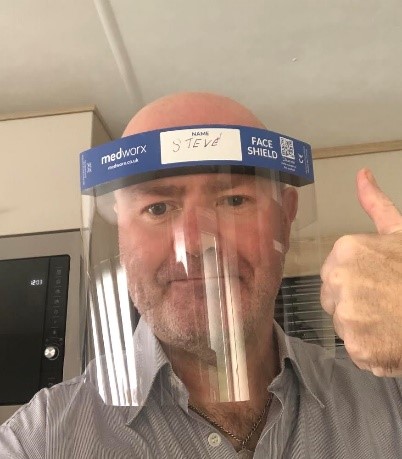
Julie is a Professor in Intellectual and Developmental Disabilities at Kent and Professor in Disability at La Trobe University, Australia. Professor Beadle-Brown completed her Masters in French and Pschology and PhD at the University of St Andrews, Scotland. Her PhD focused on imitation, theory of mind and play in autistic children and adults.
In 1998 Julie was appointed as Lecturer in Learning Disability to teach on the Service Issues and Research Methods modules of a newly developed MSc in Analysis and Intervention in Learning Disability. Since then, she has played a key role in developing the use of e-learning and distance learning at the Tizard Centre and has developed new programmes in Autism Studies at both undergraduate and postgraduate level.
I am dedicated to improving the health and quality of life of people with learning disabilities and the continued development and the strengthening of this branch of nursing.
My clinical experience has included both the mental and physical health of adults in prevention, promoting the public health agenda and multi-faceted and multi-disciplinary interventions. I have a proven track record across a number of areas which include: developing and delivering high quality levels of service in clinical practice, education and development, leadership and consultancy, service development and evaluation. I have worked in three NHS Trusts in both clinical and education roles and have worked both home and abroad to develop and improve services.

Sam has worked in several places supporting people to live independently. Sam learnt a lot about communities and how to get involved in making communities and people’s lives better.
Sam is passionate about the contribution we all can make being valued & recognised & is always looking for opportunities to collaborate with & learn from other people.
Session 2 — 25 November 14.00 to 15.15
Supporting people with learning disabilities to keep busy, connect and learn.
Covid-19 has significantly restricted community opportunities for people. Individuals, their families and supporters have needed to revisit ways to make life more interesting at home. Feedback from our specialist personal development community courses praises how well we engage people in meaningful activity and adapt what we do to meet individual need.
We aim to share our learning and reflect on how our approach can be used in people’s homes. Our focus is on practical activities and how we as supporters can best use our knowledge and skills to maximise engagement, achievement, and enjoyment.
We hope the webinar will also inspire people to share their own ideas and tips to make life more interesting for us all.
SPEAKERS
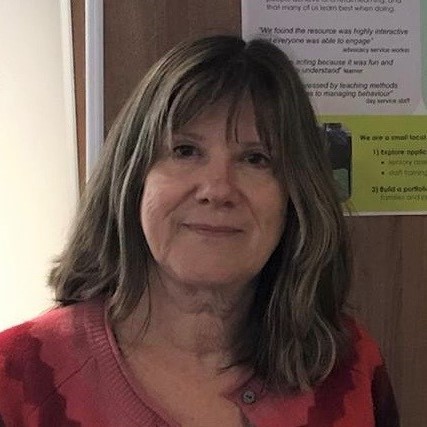
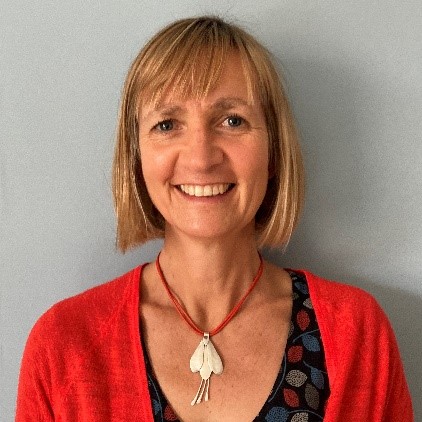
Director of a-2-e, a social enterprise delivering flexible approaches to engagement since 2005. 30 years’ experience as a manager, practioner and family carer
Teresa has 30 years’ experience of supporting, teaching and advocating with people with learning disabilities, autism and other communication needs
Together they are driven by a commitment to enable people to be understood and to achieve their greatest level of self-esteem, understanding, self-expression, choice and confidence
Session 3 — 30 November 16.00 to 17.15
Sex and Relationships Education for Young People and Adults with Intellectual Disabilities and Autism
The session will introduce you to some research we carried out to investigate how experts working in this area thought sex and relationship education needed to be adapted for people with learning disabilities and autism. We will present some of the areas where there was agreement about the focus of these adaptions and how they can be made in practice. Then we will give some consideration to the impact of the Covid virus, and how this might impact on practice in this area. Finally, there will be some time to ask any questions you may have.
SPEAKERS


Professor Burns is a Professor of Clinical Psychology at Canterbury Christ Church University, UK. Professor Burns has worked as a clinical psychologist with people with intellectual disabilities in the NHS and has carried out research in this area throughout her career. Prof Burns has previously been the programme Director for the Salomons Institute Doctorate in Clinical Psychology and has contributed to the development of the profession in the UK.
Kelly is a Clinical Psychologist who completed her clinical psychology doctoral training at the Salomons Centre for Applied Psychology, Canterbury Christ Church University, in 2017. Her doctoral thesis focused on how sex and relationships education can be adapted for people with both intellectual disabilities and autism. She has worked in various NHS services for both children and adults with intellectual disabilities and autism, and more recently in perinatal mental health services. Her interests in the areas of intellectual disabilities and autism relate to sexuality, relationships and positive behaviour support.

Sophie is a Clinical Psychologist with over 20 years NHS experience working with people with learning disability and their supporters. Additional training in Non-Violent Resistance, Systemic practice and Intensive Interaction. Experience of project management, supervision and leadership.
Currently Chair of the British Psychological Society’s Faculty for People with Intellectual Disabilities and Editor of The Bulletin.
Session 4 — 1 December 14.00 to 15.15
Trauma-informed Care and Intellectual Disability
The session covers the main topics of trauma-informed care via the theoretical positions of key researchers who have worked in either the field of psychotherapy or disability or both. It brings together these bodies of knowledge so that support staff can identify stages of emotional development and plan interventions for the benefit of the person with intellectual disabilities.
SPEAKERS


Dr Pat Frankish is a clinical psychologist with many years of experience in the field of disability and psychotherapy. Her early life was spent living on the grounds of a long-stay hospital where her parents worked. Even as a child she knew that things could be better for the people she knew. After later working in the hospital and meeting a clinical psychologist she secured a University place and then went on to train as a Clinical Psychologist. During her training, she also followed a course of study in psychodynamic psychotherapy. Her career has followed a path of bringing these two areas together and has written several publications on trauma informed practice for staff and parents.
Allan has consistently advocated for government policy and health & social care services to acknowledge the unacceptable rates of maltreatment endured by people with intellectual disabilities, and to address this by enhanced protection and support, especially to the importance of emotional security as described in Attachment Theory
Session 5 — 9 December 15.00 to 16.15
Sunnybank trust
How We Beat the Lockdown Blues.
The Sunnybank Trust share practical ways of how to develop online activities and engage with adults with learning disabilities and how they provide an inclusive radio show for the learning disability community.
SPEAKERS
Dorothy Watson – CEO
Jon Andrews – The Sunny Sessions
Jovi Edwards – Choices Officer
Martin Bell – Sunnybank Ambassador
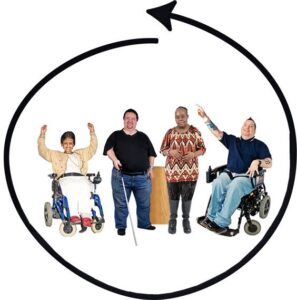

The post LDT London 2020 Virtual Event first appeared on Pavilion Learn.
]]>